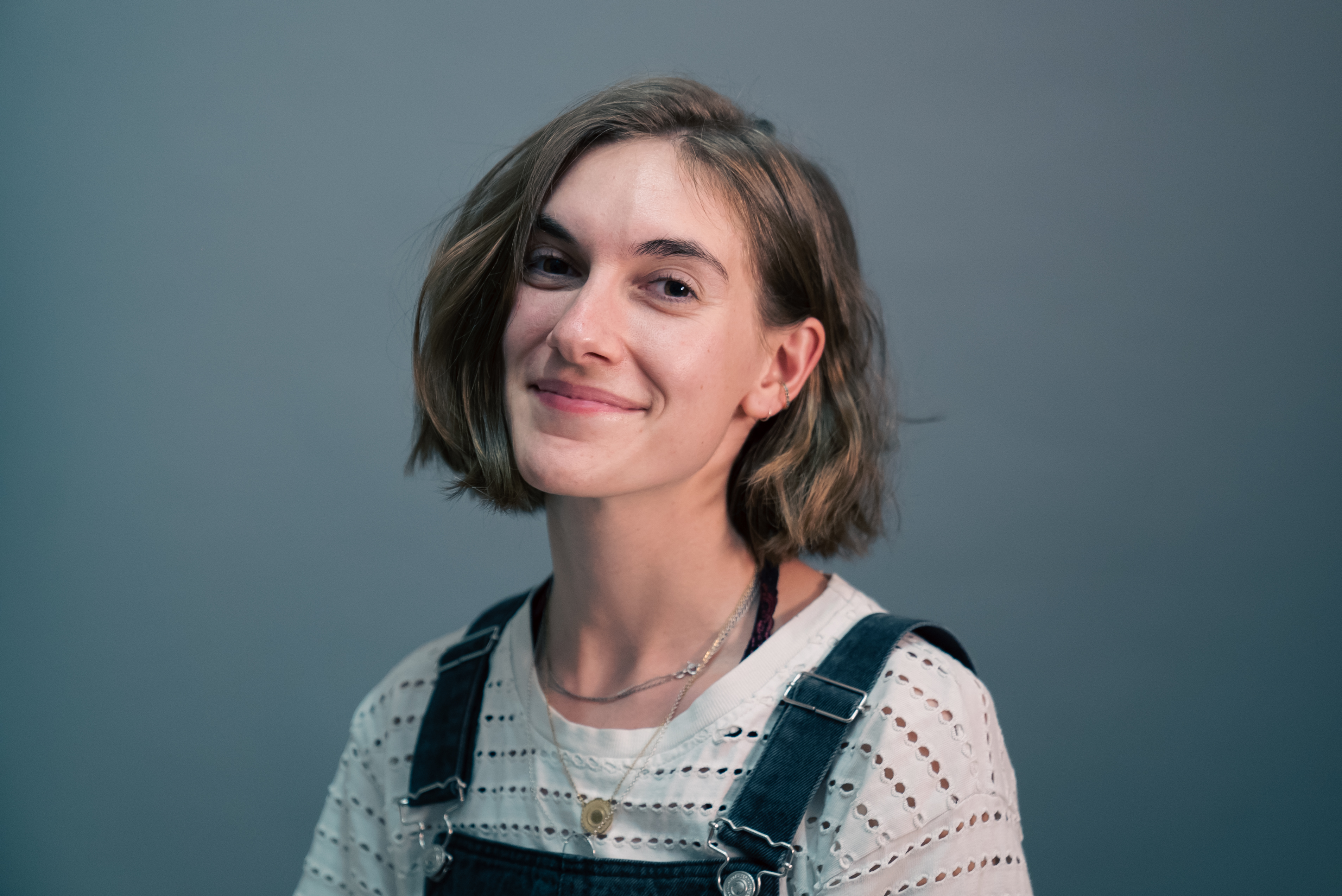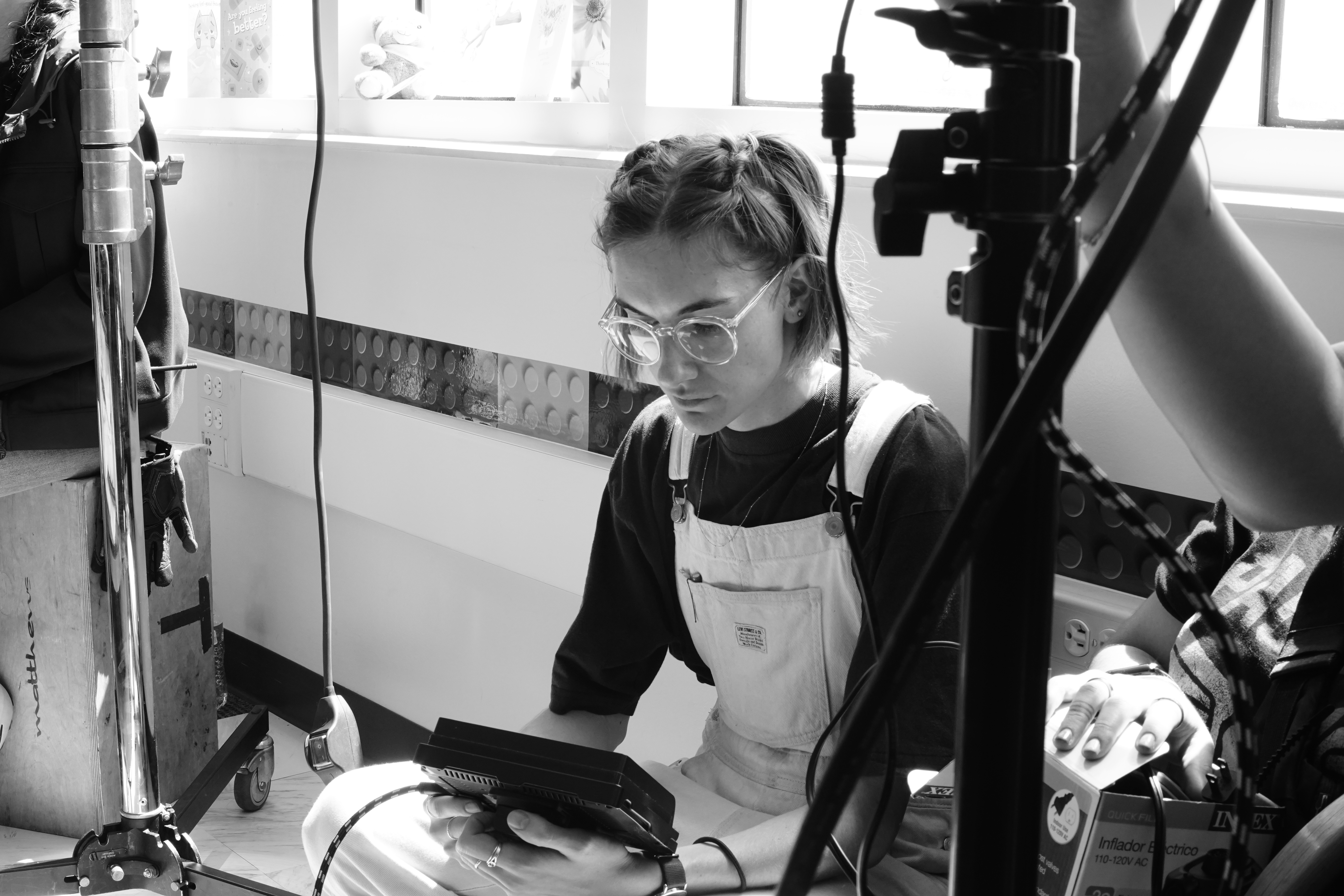.jpg)
In a film industry where storytelling is both a craft and a calling, authenticity and innovation remain the gold standards. Today’s most impactful filmmakers are those who can bridge cultures, evoke emotion, and challenge convention—all while navigating a rapidly evolving cinematic landscape.
Among them, Julie Peley has emerged as a distinctive voice. A director and cinematographer with roots in Paris and a professional home in Miami, Peley brings a rare multicultural sensibility to her work.
Fluent in French and English, with working knowledge of Spanish and German, she channels her global perspective into projects like After Mountains, Azulejos, and Constellations.
“Directors here in the U.S. often tell me they love how I bring a fresh, poetic approach to framing and lighting,” she says.
“It’s something I don’t always notice myself, but it comes from growing up with European cinema and blending that with American storytelling.”
Her films are characterized by a poetic realism influenced by European cinema and energized by the bold spirit of American storytelling, earning her both critical acclaim and a growing reputation as a visionary in the field.
Peley’s multicultural perspective was shaped early on in a city just south of Paris, where she immersed herself in the arts. From 15 years of dance to mastering the guitar and piano, her creative foundation was broad and vibrant.
A pivotal moment came when she discovered her father’s film camera, sparking a love for visual storytelling.
“I found my dad’s old film camera and thought: ‘This is super cool,’” Peley recalls.
“I fell in love with the tactile process of shooting on film, and I’ve barely touched a digital camera for photography since.”
.jpg)
That hands-on, analog experience became the spark that ignited her lifelong passion for visual storytelling.
This early fascination with imagery naturally evolved as she immersed herself in literature and the arts during high school, deepening her understanding of narrative and emotional expression. It set the stage for a career built on translating cultural nuance into moving images, combining the painterly eye of a photographer with the layered storytelling of a filmmaker.
Her ability to bridge cultures is evident in her directorial debut, After Mountains, a thesis film inspired by a personal story. As director, Peley drew on her French sensibility to craft a narrative that felt both intimate and universal, working with young actors to capture authentic emotions.
“I’m very interested in translating a feeling into a visual medium,” she says.
“It’s about capturing a character’s psychology or the emotional tone of a scene and expressing it through light, framing, or editing. That transformation—from internal emotion to external image—is what excites me most about filmmaking.”
This principle guided her approach to casting and direction, shaping performances that felt emotionally true and visually cohesive.
Valentina Shelton, an actor and singer-songwriter based in Los Angeles, first met Peley in 2018 while they were both studying at the University of Miami. She has since collaborated with her on multiple creative projects, including music videos and live performance shoots.
“Peley is gentle, kind, and respectful,” Valentina shares. “She’s probably one of the most attentive people I’ve met—she makes an actor feel confident, safe, and secure. On set, I remember feeling heard and protected, even as she stayed on schedule and efficiently completed the shots. She’s collaborative, creative, and has a real vision for storytelling.”
Peley’s talent for fostering collaboration on set—shaped by her background as a tutor and caregiver—proved invaluable during high-pressure moments, like a last-minute location cancellation on her thesis film After Mountains.
Despite losing access to a key hospital set just days before shooting, she quickly pivoted, transforming a university hallway into a convincing medical space. That adaptability, paired with her creative vision, helped the film earn multiple festival awards and critical recognition, including praise from a producer of Moonlight, who called the work a standout.
Peley’s cinematography further showcases her multicultural lens. On Azulejos (2021–2022), directed by Maria Paula Arboleda, she served as director of photography, crafting visuals that audiences praised for creating “a whole world through the image.” Her European-influenced framing, marked by poetic realism, brought a distinctive texture to the film.
“People tell me the way I see things is different because I come from French culture and European film,” she notes.
“Sometimes, there seems to be a certain emotional or poetic feel in the way I frame or light a scene, though it’s not usually something I do consciously. It might come from a European influence that’s quietly shaped the way I see and tell stories.”
Daniela Orlando is a Miami-based producer who has worked closely with Julie Peley across multiple projects, including her MFA thesis film. Having seen her in action both on set and in post-production, he speaks highly of her creativity and reliability.
“Julie’s vision and sensitivity help shape a story when it’s falling apart,” she says.
“Whether we’re missing footage or the narrative feels flat, she always finds a way to give it meaning and depth. She’s a natural problem solver—on set and in the edit.”
Using tools like the Arri Alexa Mini and RED Komodo X, Peley tailored her approach to each project’s emotional tone, blending lyrical aesthetics with precise technical execution. Her choices in lighting and camera movement are never arbitrary—they’re deliberate extensions of character and mood.
Peley’s multicultural perspective also shines in projects like Constellations (2023), another collaboration with Arboleda. Her ability to shape the narrative from a script into meaningful images reflects her understanding of diverse storytelling traditions.
“Translating a psychological aspect into a visual medium is what I love most,” she explains.
“It’s about taking what a character feels—grief, joy, tension—and finding a way to express that through the visual language of film. Whether it’s the color palette, the way light hits a face, or the way you frame a character, every choice becomes a window into their inner world. That’s where the magic of cinema happens for me.”
Mindful of every detail, she meticulously crafts shots that honor the director’s intent while adding her unique cultural insights. Her work on Climate Resilience (2022–2023), an educational series, demonstrates her commitment to socially impactful stories that bridge cultural divides.
Peley’s global outlook is not just artistic but practical. Her fluency in multiple languages enables her to collaborate seamlessly with international teams, a skill she honed on projects such as Henriette et les Hortensias (2023) in Paris and Los Colores de Marvia (2022) in Miami.
“I love that every day can be different,” she says.
“I’m discovering new people and broadening my vision of the world. One day, I might be filming a documentary in a hospital, and the next, I’m shooting a narrative short in a completely different cultural setting. That constant change keeps me inspired and open.”
This adaptability makes her a highly sought-after collaborator, as directors value not only her technical skill but also her intuitive ability to bring fresh, culturally sensitive perspectives to their stories. Whether working in Miami, Paris, or beyond, Peley’s openness to new environments enables her to connect deeply with both the subject and the crew.
Maria Paula Arboleda, a director and writer who has worked extensively with Peley on projects such as Tacet and Azulejos. Maria first met Peley in 2019 during her undergraduate studies at the University of Miami and has since developed a strong creative partnership with her.
“Peley is incredibly passionate about what she does, and because of that, she treats every project like it’s her own,” Maria says.
“She’s generous with her time, a great communicator, and people genuinely love working with her. That level of commitment and personal investment is rare, especially in freelance work.”
Her process is rooted in discipline and respect, values she attributes to her multicultural upbringing and years of working in caregiving and education. She believes that a harmonious, respectful set is essential to great filmmaking—a belief that shapes how she leads and collaborates across every phase of production.
“I want to prioritize the people I work with as much as how it’s going to look,” Peley says.
“Because no matter how beautiful the frame is, if the crew isn’t feeling supported or the energy on set is off, it affects the whole production. A happy team makes better art.”
This emphasis on emotional well-being and mutual respect fosters an environment that encourages creativity to thrive. Peley draws on her background in tutoring and caregiving to create a sense of trust and cohesion among cast and crew, ensuring that everyone feels valued and heard. It’s this commitment to people, not just pictures, that sets her leadership style apart.
Her pre-production rituals—detailed lighting diagrams and shot lists—ensure efficiency, allowing her to focus on capturing the story’s essence. On After Mountains, when a hospital location fell through, she transformed a university space into a convincing set, showcasing her ability to problem-solve.
“That was stressful, but it taught me to adapt,” she reflects.
“It reminded me that problem-solving is a core part of filmmaking. You can plan everything, but things will still go wrong—and how you respond in those moments defines the outcome.”
That mindset has become a cornerstone of her approach, allowing her to stay calm under pressure and lead with resilience.
Felipe Urso Torres, producer, director, and co-founder of the Coconut Grove Film Festival, has worked with Peley in multiple capacities—as a director, camera assistant, and cinematographer—and has also showcased her work at his festival.
“Peley once pitched a cheap set of lenses I’d never heard of for a shoot, and I was skeptical,” he recalls.
“But she tested them and proved they could create something stunning on a budget. Her eye, patience, and ability to deliver beauty with limited resources blew me away—that’s the kind of creative problem solver you want on every project.”
Peley’s ambition goes beyond executing beautiful visuals; it’s rooted in a deep desire to amplify underrepresented voices and drive meaningful dialogue through storytelling. Her projects are carefully chosen, each one a step toward sparking awareness and empathy.
“I want to work on projects that have social impact,” she says, citing her work on Traffikid (2024–2025) and Climate Resilience.
“Stories that inform, challenge, and reflect real-life struggles matter to me. If my work can move people or open their eyes to something new, then I know I’m doing what I’m meant to do.”

Her goal is to create films that spark dialogue and foster understanding across cultures. As she navigates her career, having graduated in 2024, she aims to focus on feature narratives that align with her values.
“When you work on something you truly believe in, it’s the most rewarding thing,” she adds.
“You feel it in every part of the process—on set, in the edit, during screenings. There’s a sense of purpose that drives you, even through the long hours and inevitable setbacks.”
For Peley, that sense of purpose is what distinguishes a good project from a great one. It fuels her creativity, strengthens her collaborations, and reminds her why she chose this path in the first place. Whether she’s directing, shooting, or lighting, her best work emerges when the story aligns with her values and resonates with something larger than herself.
“I want to be remembered as someone who puts the story first,” she says.
“Whether I’m directing, shooting, or lighting, my focus is always on serving the narrative and the director’s vision, not showing off my skills. I believe the simplest choices often make the biggest impact, and I’d love for people to see me as someone who tells authentic, meaningful stories with care and dedication.”

As a highly sought-after filmmaker, Peley’s multicultural lens is redefining cinematic storytelling. Her ability to blend French artistry with global sensibilities, coupled with her technical mastery, positions her as an expert whose influence will shape the industry for years to come.
By telling stories that connect, challenge, and inspire, Peley, best in her field, is crafting a legacy that transcends borders and speaks to the heart of humanity.







